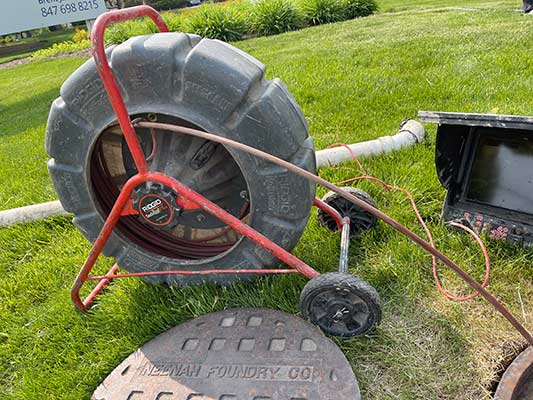Buying a new home is an exciting milestone, but it’s important to ensure that everything is in good working order before making such a significant investment. One area that requires careful inspection is the plumbing system. Plumbing problems can lead to costly repairs and inconvenience down the line, so it’s crucial to thoroughly check for any issues before finalizing the purchase of a new home in Illinois. In this article, we will guide you through the process of checking for plumbing problems, providing you with the necessary knowledge to make an informed decision.
Why Checking for Plumbing Problems is Important
The plumbing system is an integral part of any home, responsible for delivering clean water and removing waste efficiently. Ignoring potential plumbing issues during the home buying process can result in significant expenses and disruptions later on. By taking the time to inspect the plumbing system thoroughly, you can identify any existing problems or potential issues and negotiate repairs or price adjustments with the seller.
Where to Start
When examining the plumbing system of a potential new home, it’s crucial to conduct a comprehensive inspection. Here are some key areas to focus on:
1. Water Supply
Check the water pressure in each faucet to ensure it is adequate. Low water pressure can indicate issues with the plumbing system, such as clogged pipes or leaks. Additionally, check for any signs of discolored water, which can be a sign of pipe corrosion or sediment buildup. It’s also important to test different faucets simultaneously to confirm that the water pressure remains consistent throughout the house.
2. Drains and Toilets
Inspect all drains and toilets to ensure they are functioning properly. Run water through each drain and observe its flow. Slow drainage could indicate clogs or improper venting. Flush all toilets and check for any signs of leaks or continuous running. It’s vital to ensure that the drains and toilets are working efficiently to avoid future plumbing issues.
3. Water Heater
The water heater is another essential component of the plumbing system. Determine the age of the water heater and inquire about its maintenance history. Look for any signs of leakage or corrosion around the unit. A properly functioning water heater is crucial for a comfortable living environment.
4. Visible Pipes
Inspect the visible pipes in the basement, crawl spaces, or utility rooms for signs of leakage, corrosion, or damage. Look out for water stains, mold, or mildew, as they indicate potential plumbing issues. Pay attention to any unusual odors as well, as they could be a sign of hidden leaks.
5. Sewer System
An often overlooked aspect of the plumbing system is the sewer system. Consider hiring a professional to conduct a sewer scope inspection. This involves inserting a small camera into the main sewer line to identify any clogs, tree root intrusions, or damaged pipes. Identifying sewer problems before purchasing a home can save you from expensive repairs in the future.

Consider hiring a professional to conduct a sewer scope inspection. This involves inserting a small camera into the main sewer line to identify any clogs, tree root intrusions, or damaged pipes.
Hiring a Professional Plumbing Inspection
While conducting a preliminary inspection on your own can provide valuable insights, it’s always wise to hire a professional plumber for a thorough examination. A licensed plumber has the expertise to identify hidden plumbing issues that may be beyond the scope of a novice’s inspection. They will conduct a comprehensive evaluation of the plumbing system, including all fixtures, pipes, and appliances.
During the professional inspection, the plumber will:
- Check for leaks and signs of water damage
- Inspect the water pressure and flow rate
- Evaluate the condition of pipes, fittings, and joints
- Test drains and toilets to ensure they are functioning optimally
- Assess the performance and lifespan of the water heater
- Examine the sewage system for any blockages or damage
After the inspection, the plumber will provide you with a detailed report, outlining any existing plumbing problems and their estimated repair costs. This report can be used as a negotiation tool with the seller or to make a well-informed decision about the purchase.
To Sum it Up
Checking for plumbing problems is a crucial step when buying a new home in Illinois. By thoroughly examining the water supply, drains, toilets, water heater, visible pipes, and sewer system, you can identify any potential issues and negotiate repairs or price adjustments accordingly. However, it’s essential to remember that a professional plumbing inspection is highly recommended to ensure a comprehensive evaluation of the plumbing system. By taking the time to assess the plumbing system before finalizing the purchase, you can avoid unexpected expenses and enjoy a worry-free homeownership experience in your new Illinois home.
